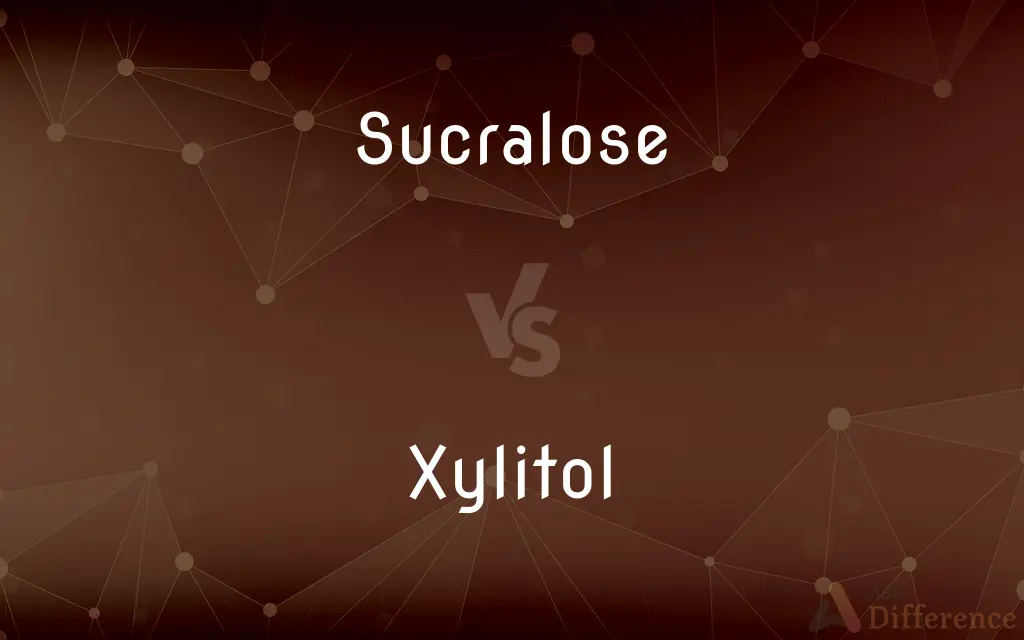Sucralose vs. Xylitol — What's the Difference?

Difference Between Sucralose and Xylitol
ADVERTISEMENT
Compare with Definitions
Sucralose
Sucralose is an artificial sweetener and sugar substitute. The majority of ingested sucralose is not broken down by the body, so it is noncaloric.
Xylitol
Xylitol is a chemical compound with the formula C5H12O5, or HO(CH2)(CHOH)3(CH2)OH; specifically, one particular stereoisomer with that structural formula. It is a colorless or white crystalline solid that is soluble in water.
Sucralose
An intensely sweet, heat-stable derivative of sucrose that contains no calories.
Xylitol
A sweet white crystalline alcohol derived from xylose, C5H12O5, used in gum and oral health products to inhibit bacteria that cause caries and as a dietary sugar substitute.
Sucralose
A selectively chlorinated sucrose, used as an artificial sweetener.
ADVERTISEMENT
Xylitol
(chemistry) A pentahydric alcohol, C5H12O5, penta-hydroxy pentane; derived from xylose; used as a sweetener.
Share Your Discovery

Previous Comparison
Surrealism vs. Fantasy
Next Comparison
Affirmative vs. Yes














































